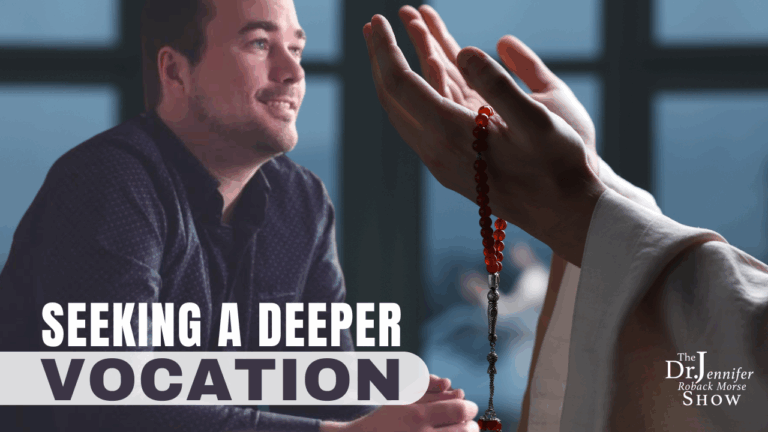by Jennifer Roback Morse Nov. 26, 2018 at NCRegister.com.
One curious feature of the current clergy sex-abuse scandal is the reticence of the non-Catholic media to go after the predators.
Many journalists in the “Legacy Media” seem to have an “anti-Catholic default” setting. One might think such journalists would leap at the chance to pile
on with negative reports about the behavior of the Catholic hierarchy. Yet most secular newsrooms have been quite subdued on this issue.
This situation cries out for an explanation.
I propose that many people in our culture, including the media, subscribe to what I call “Cherished Beliefs of the Sexual Revolution.”
These tenets of secularism have been so widely promoted, defended and accepted that they are part of the air we breathe. We don’t even recognize that we
believe these ideas.
Some of these ideas have specifically to do with homosexual activity and identity. Others are part of the more general ideological structure of the sexual
revolution. Dissecting these ideas and correcting or even discarding them is a crucial step in getting to the bottom of the clergy sex-abuse scandal.
Allow me to assist.
Let me state for the record: Gross generalizations are unfair and unhelpful. I will never say “All gay men are … .” In fact, I once wrote an article
called “Fifty Shades of Gay” — so I’m not about to draw rash conclusions about
“gay men” from the behavior of a few.
However, the over-representation of homosexual predation certainly casts doubt on what I will
call the “Grand Gay Narrative.” The marketing machine for “LGBT” activism and its allies in the sexual revolution have gone to a lot of trouble to
create the following impressions in the public mind:
- Being gay is a normal variation of healthy human sexuality. “Straight” vs. “gay” is no more significant than left-handed vs. right-handed.
- Gay people are “born that way.”
- Any problems that gay people might have are the result of “homophobia,” that is, unjust discrimination against them by society, or “internalized homophobia,”
that is, self-hatred.
People who hold these ideas might very well object, “That isn’t exactly what we mean.” I will be glad to accept a moderation of their position if they
care to walk back these extreme versions.
Let’s see where that would leave us:
In response to each of these points:
- Not every person who claims a homosexual identity or engages in homosexual acts is a paragon of mental health. Some of them are out of their minds
(including, perhaps, some of the sexually compulsive priest-predators?). Not every person who claims a homosexual identity or engages
in homosexual acts is an innocent lamb. Some of them are mean, nasty and selfish (including, perhaps, some of the serial predators?). - Even if people are born with a sexual attraction to people of their own sex, it does not follow that those same people (or anyone at all) is born with
an uncontrollable urge toward sexual predation or habitual lying. (Was Theodore McCarrick “born that way”?) - “Homophobia” has nothing to do with the current situation. “If only people were more accepting of homosexual activity and identity, then … .”
Then, what exactly? The clergy could behave like Harvey Weinstein and all the other married men who sexually exploit women? Blaming “homophobia”
is not a credible response to decades long patterns of abuse.
In short, it should be appropriate to say, “Men of homosexual inclination used the priesthood as a base of operation for preying on teenaged boys.”
Behind these specific beliefs about homosexual practices are also some general cherished beliefs of the sexual revolution. They include:
- Sexual activity is an absolute necessity for a healthy life. (News flash: No one has ever died from not having sex.)
- Sexual activity is an entitlement. (Only a rapist truly believes he is “entitled” to sex.)
- Any problems one might encounter from sexual activity are the result of either lingering “sex-negative” prejudices or not using your “protection” correctly
and consistently. (People can have all sorts of problems from having sex at the wrong time, with the wrong person, in the wrong situation, even if their condoms work perfectly.)
This ideological aegis is providing cover for clergy sexual abuse. Journalists, judges, lawmakers and opinion-leaders who subscribe to these ideas are
going to squirm when they try to face the evidence. Like the “#MeToo” movement, they are trying to condemn sexual abuse while still embracing the ideologies
that made it possible.
Some of my readers no doubt have already figured out from experience that the sexual revolutionaries have been lying to them.
I urge you to examine your conscience in search of lingering traces of these beliefs. Go to confession. You will feel better, I promise you. And you will
be a more credible witness in the Church’s current hour of need.
If you are still hanging on to any of these beliefs about same-sex attraction, I beg you to re-examine them. If you have friends who are hanging on to
them, share this article with them. You can feel good about yourself without subscribing to superstitions.
In fact, you’ll feel better about yourself and about life in general if you know the truth. Just follow the One who described himself as “the Way, the
Truth and the Life.” In this case, as in so many others, the Truth really will set you free.



